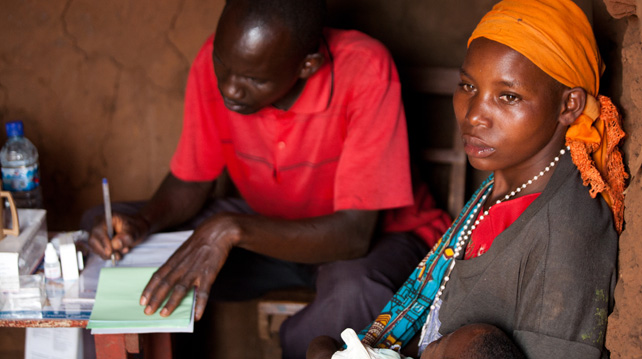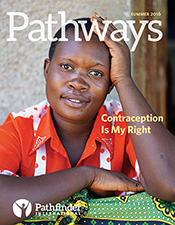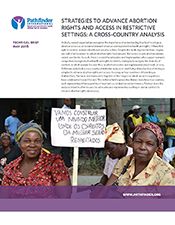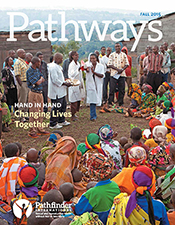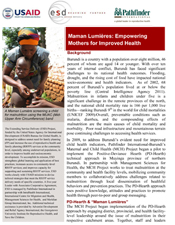Democratic Republic of the Congo
The Democratic Republic of Congo, like many countries in Africa, has experienced years of conflict resulting in large numbers of displaced or transient persons and refugees. Living in a crisis setting or being forced to leave one's home exposes women and girls to limited access to health care, minimal or nonexistent community and family support, and greater vulnerability to sexual violence and exploitation, all of which can have a negative impact on reproductive health.
While significant progress has been made in raising awareness about reproductive health needs in emergency settings, there is still a need in DRC for multiple models of service delivery that address the evolving needs for reproductive health, family planning, and gender-based violence services at different stages of crises.
Pathfinder began working in eastern DRC in 2008 to identify flexible approaches and models for delivering reproductive health, family planning, and gender-based violence services in different phases of crises, with the goal of integrating the models into National Emergency Response Procedures. Pathfinder's work aims to reach internally displaced persons, refugees, and populations living in transition using a number of approaches and strategies, including:
- Community outreach for issues ranging from contraceptive distribution to behavior change;
- Advocacy aimed at addressing sexual and gender-based violence; and,
- Facility renovation to permit the upgrading of service.
Pathfinder approaches these strategies holistically, involving the community throughout implementation, supporting community supervision, and partnering with the government in order to create sustainable solutions for the future.
Our Projects
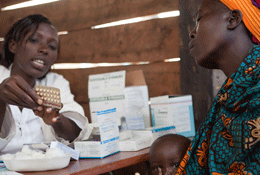
Access to Primary Health Care Project
Pathfinder works to improve primary healthcare in the Democratic Republic of Congo by supporting reproductive, maternal, and neonatal health services.
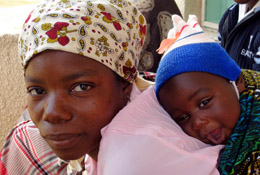
Evidence to Action for Strengthened Family Planning and Reproductive Health Services for Women and Girls (E2A)
The Evidence to Action Project (E2A) is USAID’s global flagship for strengthening family planning and reproductive health service delivery.
Related Publications
Contraception Is My Right
In this issue of Pathways, Mbuyi, a mother of 15 children in the Democratic Republic of the Congo, discovers she has a choice about pregnancy.
Strategies to Advance Abortion Rights and Access in Restrictive Settings: A Cross-Country Analysis
This publication explores strategies to advance abortion access and rights in four countries—Mozambique, Burkina Faso, Tanzania, and DRC—with differing degrees of legal and social restrictiveness. Through semi-structured interviews with Pathfinder field offices and partners, this publication highlights approaches to advance abortion access and rights common across all four countries, as well as approaches unique to each country’s legal and social context.
Hand in Hand: Changing Lives Together
This issue of Pathways explores Pathfinder's SCIP project and our success in reaching over four million Mozambicans with sexual and reproductive health services.
Maman Lumières: Empowering Mothers for Improved Health
This descriptive project document discusses a component of Pathfinder Burundi's Positive Deviance Hearth Project, the "Maman Lumière" initiative.
Related News
What the US can learn from Ethiopia about birth control
"If you asked me 15 years ago, there were only 600 health centers and all in very urban areas, but today there are more than 3,500," said Asnake, who is the country representative for Pathfinder International in Ethiopia. "And the health extension program started as a pilot program but now reaches every rural village in the country."
